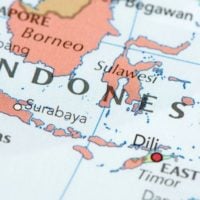Deadline: 13-Mar-23
Are you a European startup or scaleup developing innovative solutions with deliberate consideration given to these values? Are your solutions aligned with the following priorities?
- Reconnecting with nature
- Regaining a sense of belonging
- Prioritising the places and people that need it most
- Fostering long term, life cycle and integrated thinking in the industrial ecosystem
If so, Apply Now to get a boost!
Launched by the European Commission, the New European Bauhaus translates the European Green Deal into a tangible, positive experience in which all Europeans can participate and progress together.
To help foster the New European Bauhaus transformation, the EIT Community members including EIT Digital, EIT Climate-KIC, EIT Food, EIT Manufacturing and EIT Urban Mobility are offering support to the most innovative ventures that are driving sustainable change for cities, industries, climate, food, wellbeing and overall quality of life.
New European Bauhaus Challenges
- The range of EIT Community NEB supported activities includes a list of challenges thematically arranged across four Thematic Axes and sub-challenges. Applicants’ services and products must address at least one of the NEB Thematic Axes indicating one or more sub-challenges in the local ecosystem and with potential to scale-up. In addition, the services and products must clearly address an identified social challenge, ideally determined with a specific social group who would benefit from the existence of such a product or service.
- Thematic Axis 1 – Reconnecting with nature
- Challenge 1.1 – Products and services (including rapid prototypes) enhancing nature-based solutions, promoting green public spaces, and supporting urban greening.
- Challenge 1.2 – Co-design and co-stewardship of green spaces and natured-based-solutions through public-private partnerships and citizen participation.
- Challenge 1.3 – Social activation and education activities on nature-based solutions, access to and increasing of green spaces, as well as their collective stewardship.
- Thematic Axis 2 – Regaining a sense of belonging
- Challenge 2.1 – Products and services (including rapid prototypes) responding to citizens’ real needs in urban and regional spaces, as well as improving accessibility and quality of experience of citizens in their daily lives, i.e., leisure, working spaces, moving around and commuting etc.
- Challenge 2.2 – Co-design of public realm and commons with civil society and other stakeholders to favour diversity while strengthening inclusivity and equality/equity, as well as to promote coownership of public and private spaces.
- Challenge 2.3 – Awareness raising and education programmes to highlight the relationship between sustainability and resilience, as well as activities promoting interaction and collaboration between different social groups around urban and rural spaces, and heritage focused on nature conservation and culture.
- Thematic Axis 3 – Prioritising the places and people that need it most
- Challenge 3.1 – Products and services (including rapid prototypes) delivering both online and offline (in person) support, as well as public and private realm infrastructure and facilities with a focus on specific vulnerable populations, e.g., elderly, children, ethnic minorities, marginalized groups etc.
- Challenge 3.2 – Multi-stakeholder activities enhancing urban regeneration in less favoured areas, including most polluted zones, degraded or dangerous neighbourhoods, remote areas with poor communication/infrastructure, and districts with limited services.
- Challenge 3.3 – Development and implementation of social interventions encouraging cultural understanding and connection between different social groups that otherwise would not interact. Activities enhancing the experience of belonging through shared orientation towards nature protection, sustainability, and resilience.
- Thematic Axis 4 – Fostering long-term, life-cycle and integrated thinking in the industrial ecosystem
- Challenge 4.1 – Products and services (including rapid prototypes) promoting long-term use and thinking, and reduce by design; also, maintenance, reusing, refurbishing, remanufacturing re-purpose and recycling of resources and waste, including digital and monitoring tools, as well as improvement of current state-of-the-art manufactured products or industrial manufacturing processes.
- Challenge 4.2 – Public and multi-stakeholder activities fostering circular economy actions, namely with regards to resources, waste, product life extension and second life of products, and more efficient management of sources. Activities are to target unsustainable mind-sets or behaviours in specific social groups to maximize the potential impact.
- Challenge 4.3 – Awareness raising and education activities on circular economy aiming at changing individual and group behaviours that perpetuate an unsustainable use of resources and/or waste management, e.g., energy, water, food, plastic.
- Thematic Axis 1 – Reconnecting with nature
Funding Information
- The 20 best companies will receive support services worth a total of 1 million Euro. Ventures accepted into the programme will benefit from a 10,000 EUR grant and 40,000 EUR worth of active support in the form of workshops and events designed to address the following areas:
- Business Model Assessment
- Marketing & Branding
- Go-To-Market Strategy
- Funding Strategy
- Networking
- GAP Analysis
- Communications
- Financial Modelling
- Pitch Training
- Leadership Coaching
Eligibility Criteria
- This call is open to applicants whose products or services meet the following general criteria:
- Addresses simultaneously the three NEB core values.
- Addresses at least 1 of the four Thematic Axes, and one or more sub-challenges.
- Identifies the social challenge behind the innovation, and ideally identifies the social group behind the demand/challenge.
- This call is open to Start-ups that meet the following criteria:
- The applicant must be registered in one of the eligible countries:
- The Member States (MS) of the European Union (EU) including their outermost regions.
- The Overseas Countries and Territories (OCTs) linked to the Member States
- Eligible non-EU countries:
- Countries associated to Horizon Europe.
- Certain low- and middle-income countries
- Incorporated after the 1st of January 2018.
- Have a minimum EUR50,000 in revenues in 2022 or EUR100,000 minimum investment received.
- The applicant must be registered in one of the eligible countries:
For more information, visit New European Bauhaus.









































